 I think it’s pretty clear by now that you kind of have to enjoy weirdness for its own sake to grok Sonny Boy. It’s not remotely interested in modern anime convention – to the point where sometimes it seems to be flouting it for the sake of flouting it rather than any specific narrative purpose. I’m cool with that in the main, and I’m cool with Sonny Boy. But my reaction to it seems to align with a lot of the sort of anime (almost all really old) that inspired it – I find it easier to connect with intellectually than emotionally.
I think it’s pretty clear by now that you kind of have to enjoy weirdness for its own sake to grok Sonny Boy. It’s not remotely interested in modern anime convention – to the point where sometimes it seems to be flouting it for the sake of flouting it rather than any specific narrative purpose. I’m cool with that in the main, and I’m cool with Sonny Boy. But my reaction to it seems to align with a lot of the sort of anime (almost all really old) that inspired it – I find it easier to connect with intellectually than emotionally.
 I mean, if you told me that there was going to be an episode about monkeys playing baseball that never showed monkeys playing baseball, all set to a jaunty steel drum soundtrack (I’ve seen no credit identifying who’s supplying the music), I wouldn’t have had any difficulty figuring out which series was doing it. “Anything goes” is the mantra with Sonny Boy, and that’s all well and good. As long, that is, as there are rules that the premise follows – that’s pretty much a staple of any hard sci-fi that wants to be taken seriously. Fortunately Natsume Shingo is the sort of creator who knows that, and so far he seems to be sticking to it.
I mean, if you told me that there was going to be an episode about monkeys playing baseball that never showed monkeys playing baseball, all set to a jaunty steel drum soundtrack (I’ve seen no credit identifying who’s supplying the music), I wouldn’t have had any difficulty figuring out which series was doing it. “Anything goes” is the mantra with Sonny Boy, and that’s all well and good. As long, that is, as there are rules that the premise follows – that’s pretty much a staple of any hard sci-fi that wants to be taken seriously. Fortunately Natsume Shingo is the sort of creator who knows that, and so far he seems to be sticking to it.
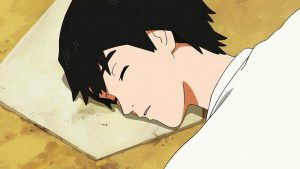 Nominally about the aforementioned monkey baseball (the “Monkey League” to be precise) this ep is really about Nagara’s power. We’re calling it “Warp” now, and it does seem to more or less be focused on traveling between worlds – but the devil is in the details. Cap has his first extended action in a while (Asakaze is still giving him the cold shoulder, which I can understand), inviting what’s now the main trio to practice on the field of dreams he’s created. The hook – he can see monkeys using the field, and they’ve learned to play baseball.
Nominally about the aforementioned monkey baseball (the “Monkey League” to be precise) this ep is really about Nagara’s power. We’re calling it “Warp” now, and it does seem to more or less be focused on traveling between worlds – but the devil is in the details. Cap has his first extended action in a while (Asakaze is still giving him the cold shoulder, which I can understand), inviting what’s now the main trio to practice on the field of dreams he’s created. The hook – he can see monkeys using the field, and they’ve learned to play baseball.
 In listening to Ueda Youji’s recitations of his Monkey League tales, you get the sense of a child with a vibrant imagination sharing the details of his fantasy life. But this is “real”, apparently – and if you use the “monkey getter” flashlight and shine it on yourself, you can see them too. Nozomi and Mizuho are desperate to see monkeys, but the owner of the flashlight, baseball star Ace, refuses to let the trio borrow it unless one of them can get a hit off him in an inning of baseball. Mizuho is utterly hopeless and Nozomi inexperienced (though clearly gifted) so former ballplayer Nagara is the only one who seems to have a shot. The catch – if he loses, he has to take the kids back to their own world without delay.
In listening to Ueda Youji’s recitations of his Monkey League tales, you get the sense of a child with a vibrant imagination sharing the details of his fantasy life. But this is “real”, apparently – and if you use the “monkey getter” flashlight and shine it on yourself, you can see them too. Nozomi and Mizuho are desperate to see monkeys, but the owner of the flashlight, baseball star Ace, refuses to let the trio borrow it unless one of them can get a hit off him in an inning of baseball. Mizuho is utterly hopeless and Nozomi inexperienced (though clearly gifted) so former ballplayer Nagara is the only one who seems to have a shot. The catch – if he loses, he has to take the kids back to their own world without delay.
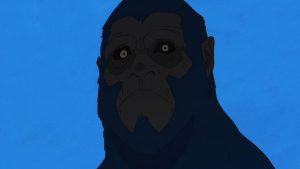 A couple of observations here. First, Ace is an asshole, obviously – an entitled tool pouting at being in a world where what made him special is useless. Second, it’s pretty apparent all along that Nagara has no real idea how his power works. So it’s hardly a surprise that after he strikes out (at least the final swing was aesthetically pleasing) he manages only to randomly move everyone between new “These” worlds. But he does manage to somehow make it possible for a teacher, Aki-sensei, to show up when he returns the kids to their island. And she seems like she means business…
A couple of observations here. First, Ace is an asshole, obviously – an entitled tool pouting at being in a world where what made him special is useless. Second, it’s pretty apparent all along that Nagara has no real idea how his power works. So it’s hardly a surprise that after he strikes out (at least the final swing was aesthetically pleasing) he manages only to randomly move everyone between new “These” worlds. But he does manage to somehow make it possible for a teacher, Aki-sensei, to show up when he returns the kids to their island. And she seems like she means business…
 But what does all this mean, in the end? Well, frankly I haven’t a clue. It’s obvious that Cap’s tale of the heroic monkey-pire who gets torn to pieces for defending the sanctity of rules is highly significant – as in, whatever is happening to these children, rules seem to be governing it at all times. I’m of the mind that Nagara’s Warp is what brought everyone here in the first place, and possibly all of these worlds could be elements of his subconscious. If he wanted to go home, he could go home – that seems like the most feasible explanation at this moment. Which means exploring the reasons why he doesn’t could in the end be the key in unraveling Sonny Boy’s entire mystery (right down to the title, maybe).
But what does all this mean, in the end? Well, frankly I haven’t a clue. It’s obvious that Cap’s tale of the heroic monkey-pire who gets torn to pieces for defending the sanctity of rules is highly significant – as in, whatever is happening to these children, rules seem to be governing it at all times. I’m of the mind that Nagara’s Warp is what brought everyone here in the first place, and possibly all of these worlds could be elements of his subconscious. If he wanted to go home, he could go home – that seems like the most feasible explanation at this moment. Which means exploring the reasons why he doesn’t could in the end be the key in unraveling Sonny Boy’s entire mystery (right down to the title, maybe).


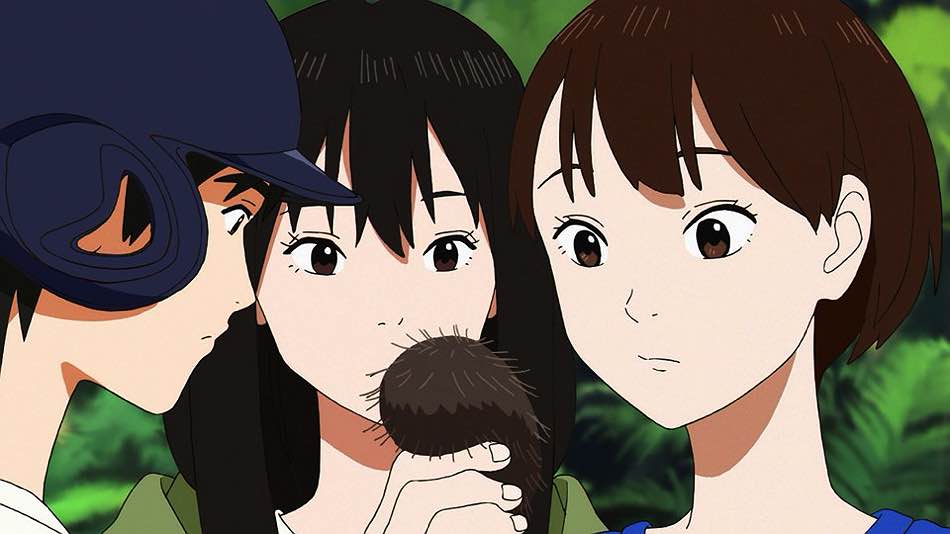


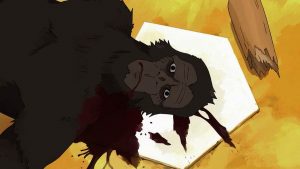
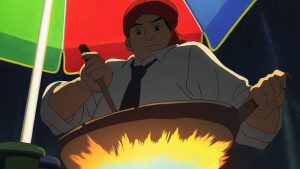

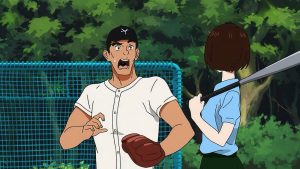










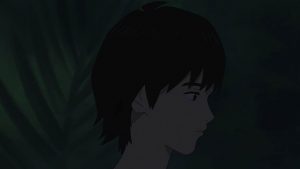
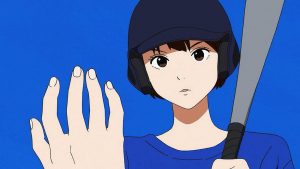
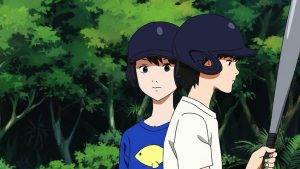
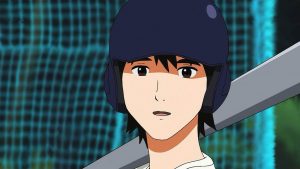
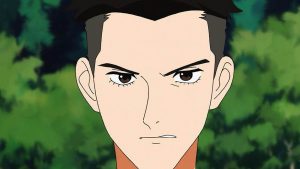


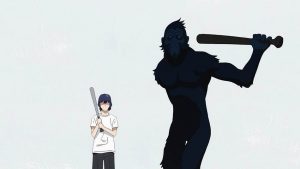
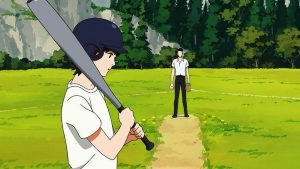
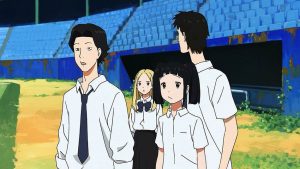




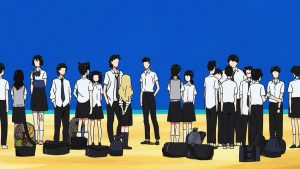


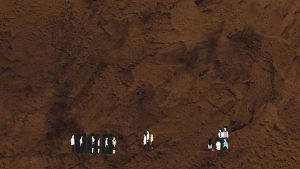
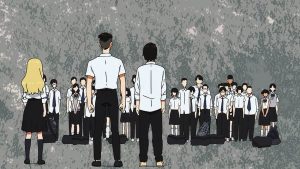




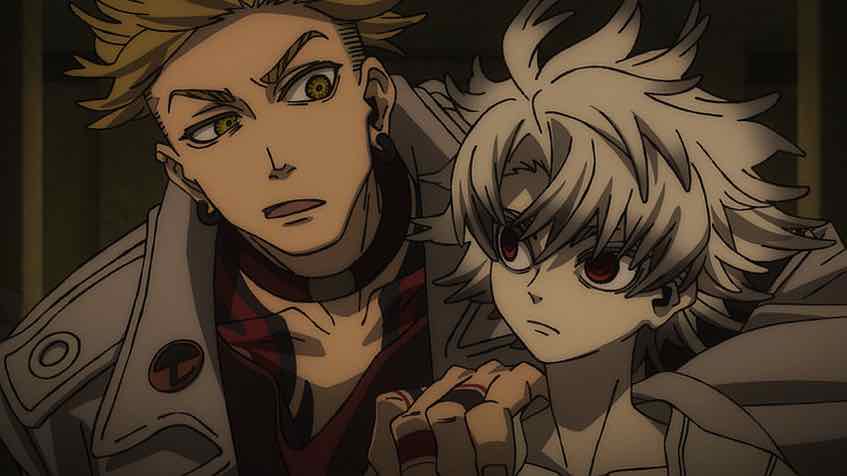

Dop
August 7, 2021 at 12:02 amThe thing that struck me was how riveting Cap’s tales of monkey baseball were and how much better it was to just hear all about the Monkey League (they ought to investigate Steroid Monkey tho’) than actually see any of it. Absolutely like a child’s fantasy, but also a bit like listening to a surreal radio play.
Guardian Enzo
August 7, 2021 at 12:05 amThat’s a good description. It was certainly effective, if very, very weird.